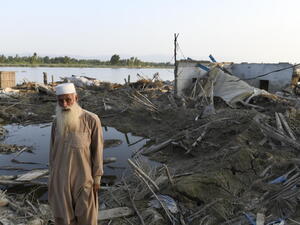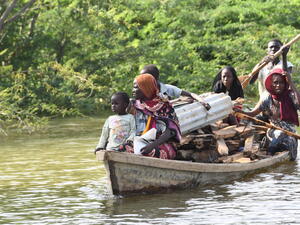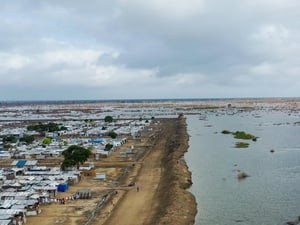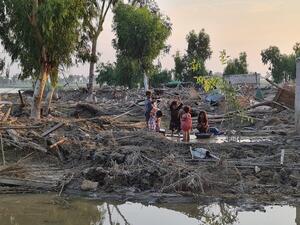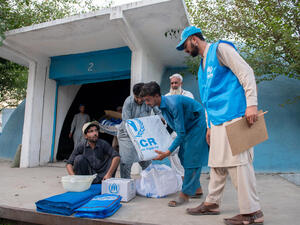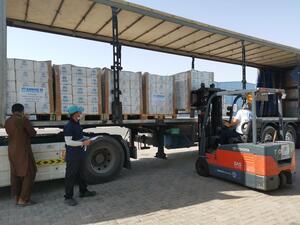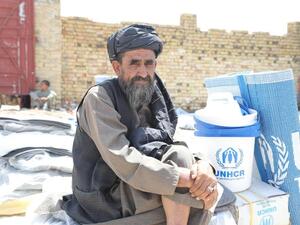Kenya: Airdrop starts for flooded refugee camp
Kenya: Airdrop starts for flooded refugee camp
Today, Friday, with the help of the US military, we are scheduled to start an emergency airdrop of more than 240 tonnes of urgently needed relief supplies to thousands of refugees affected by the massive flooding in the Dadaab refugee camps in northern Kenya. We have been facing serious difficulties in transporting the emergency supplies from Nairobi to Dadaab due to poor road conditions. We requested the US military, based in Djibouti, to help us deliver more than 240 tonnes of relief supplies including plastic sheets, blankets and mosquito nets and they kindly agreed. The US military will use a C-130 cargo plane to airdrop the supplies, with fifteen rotations planned between today and Wednesday, 13 December.
Dadaab, a three-camp complex hosting some 160,000 refugees, mainly from Somalia, has been cut off for several weeks by heavy rains that washed away parts of the Garissa-Dadaab road, the only road connecting the remote camps from the Kenyan capital, Nairobi. Air transport has been the only way of getting supplies to the camp. We have been using smaller cargo planes to reach Dadaab. The airdrop is necessary as the Dadaab airstrip cannot take the weight of a C-130 cargo plane.
After a break of some five days, heavy showers have started falling again in Dadaab causing new flooding. Some parts of the camps are inaccessible and the fresh rains have led to the further deterioration of roads within the camps. We have however, been able to airlift fuel supplies to the camp. This week, together with WFP we have managed to airlift 18,400 litres of fuel necessary to run vehicles and generators used in the hospital, camp water pumps, and offices including those of the refugee agency and implementing partners.
We have moved 7,000 of the most affected refugees from Ifo to Hagadera camp, some 20 km away and moved a further 7,000 people to higher ground. A new site, called Ifo II is being developed on higher ground. A mass information campaign was launched in Ifo camp to inform refugees of the plans agreed with refugee leaders to relocate some shelters and services to Ifo II and to explain how, when and why this will happen.


